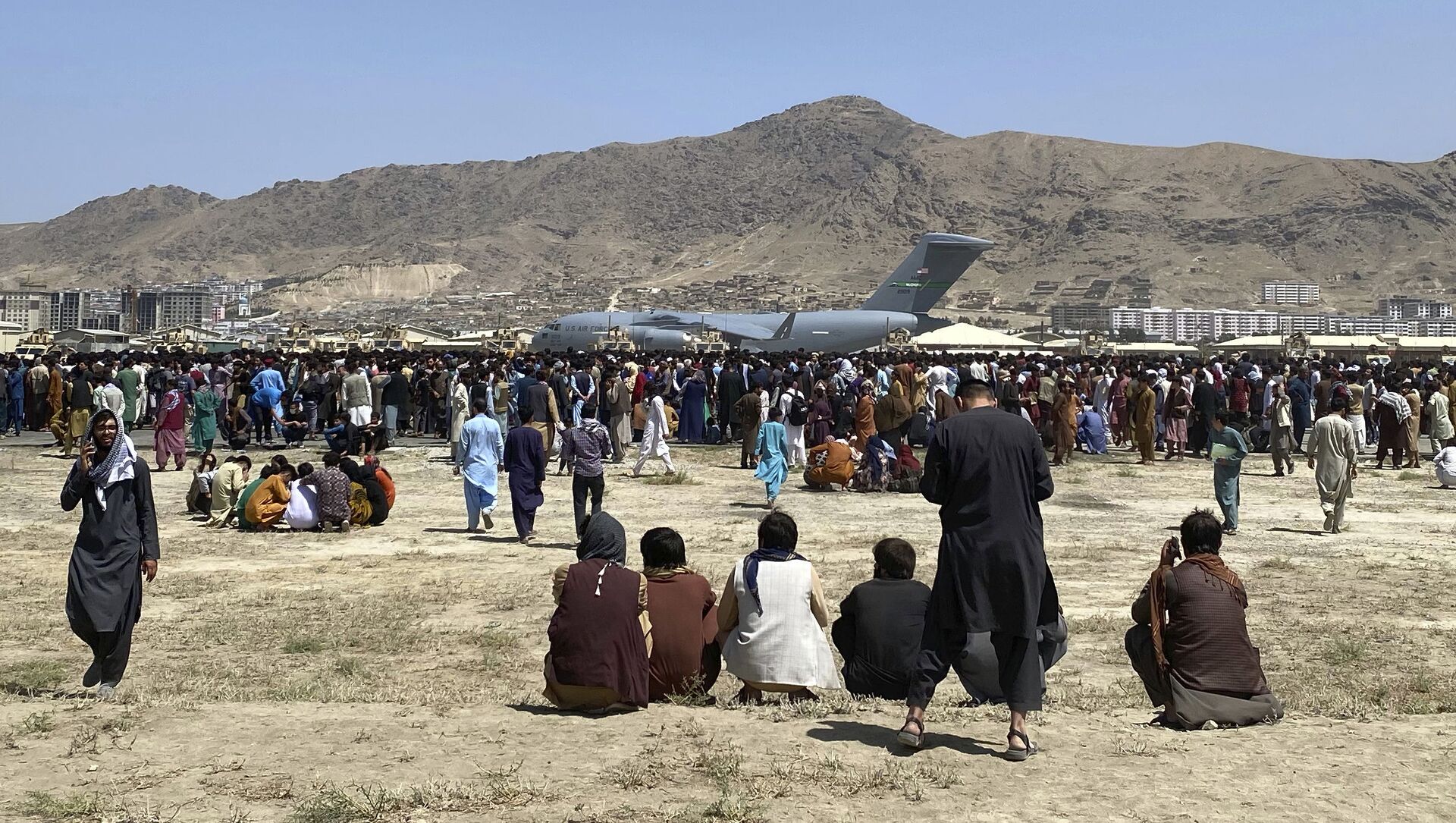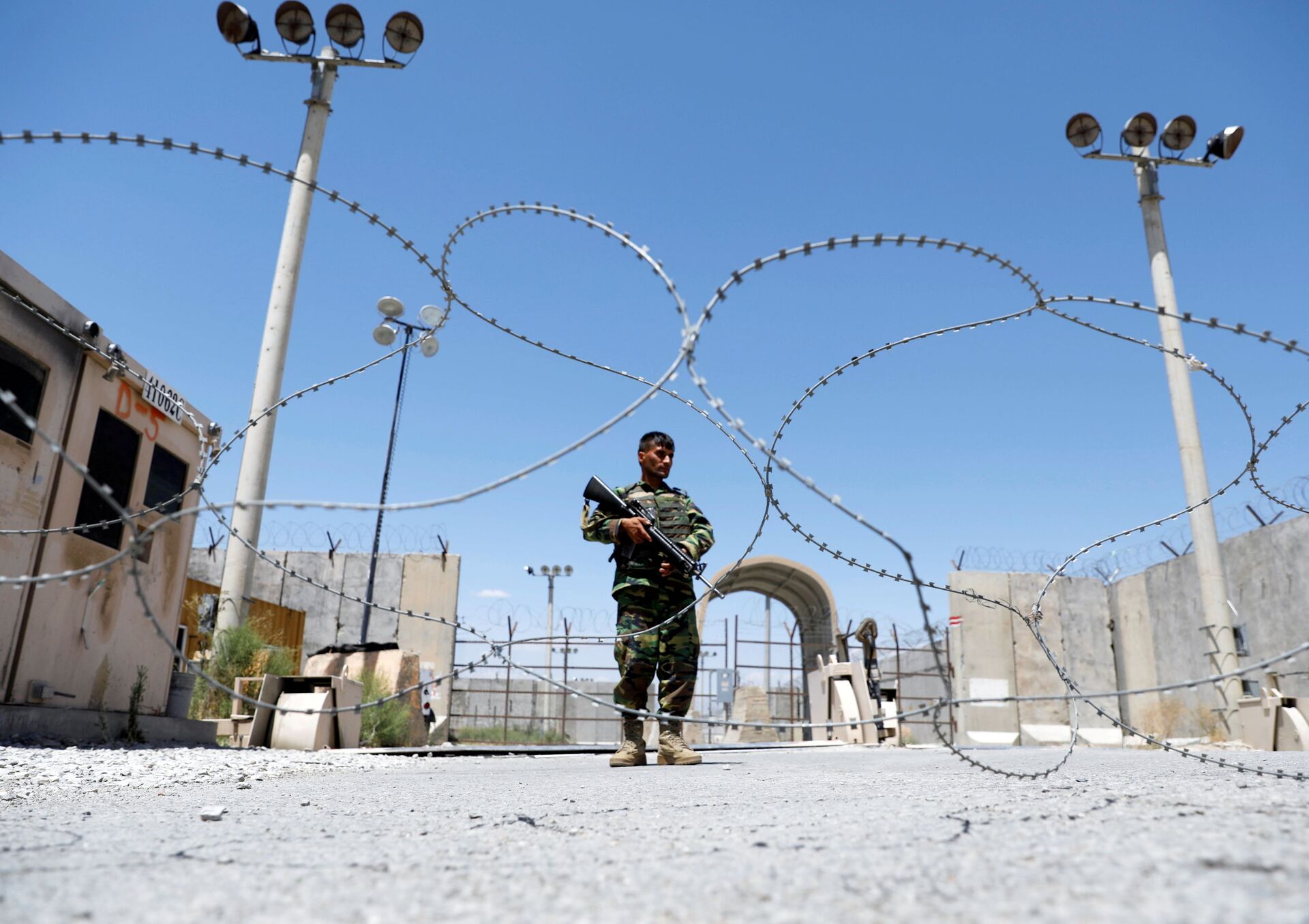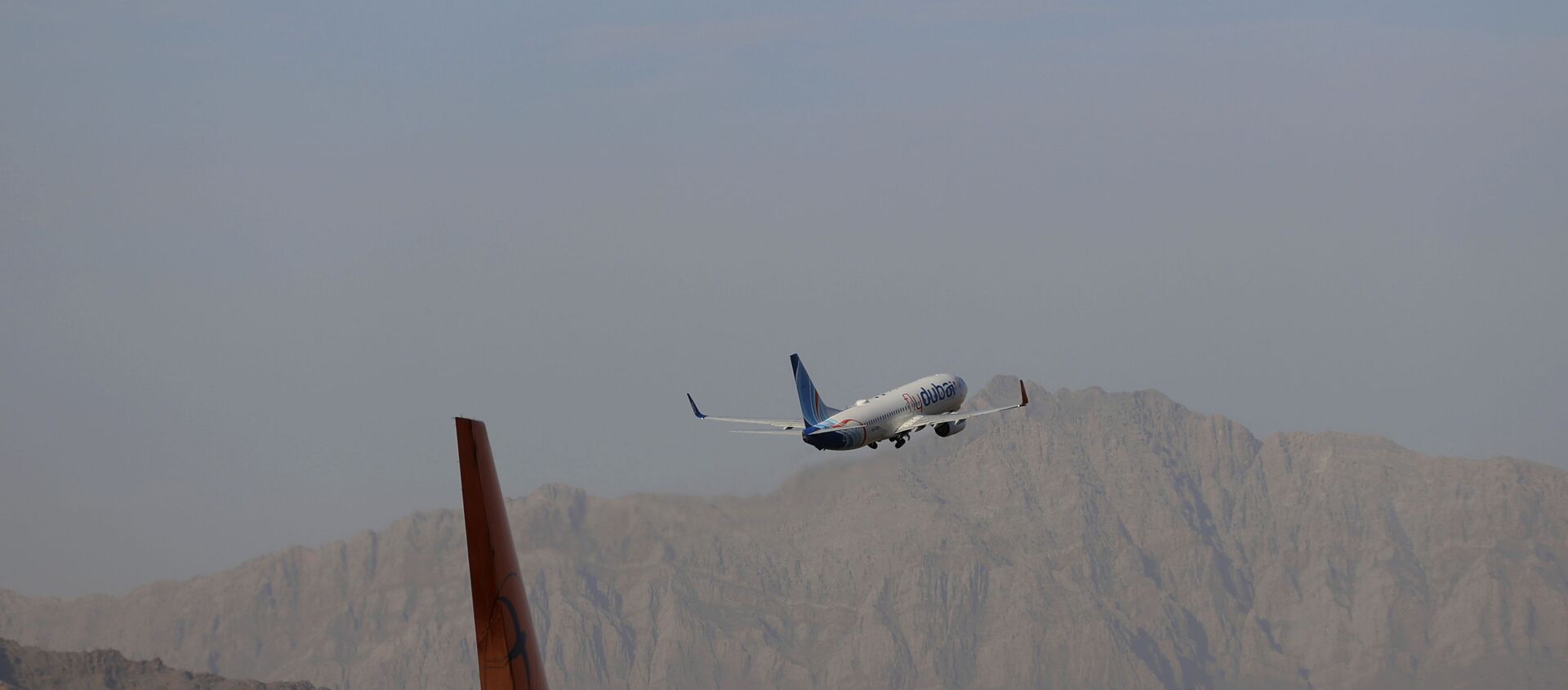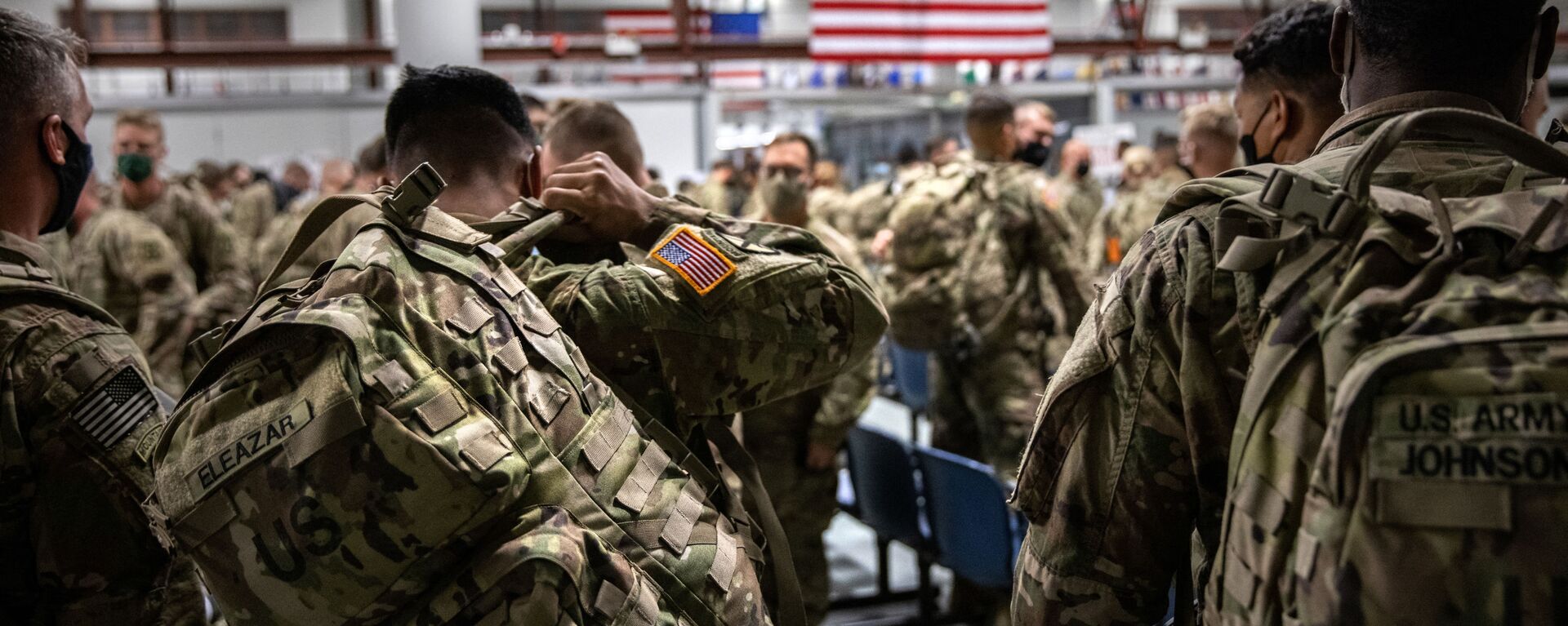Afghan Interpreters for US Fear Retribution From Taliban Amid Evacuation Chaos
11:07 GMT 17.08.2021 (Updated: 13:22 GMT 06.08.2022)

© AP Photo / Shekib Rahmani
Subscribe
MOSCOW (Sputnik), Tommy Yang - Many Afghans who worked for the United States are afraid of possible reprisals from the Taliban (a terrorist organisation banned in Russia), even as they remain in limbo, waiting for months to get documents like Afghan passports or US visas needed to leave the country.
Two Afghan citizens told Sputnik the stories of their collaboration with the Americans and the hurdles they encountered after the US announced withdrawal of their forces by September.
When G. was seven years old, he fled from Afghanistan to neighboring Pakistan following the invasion of his home country by the Soviet Union. After living in Pakistan for 23 years, the Afghan native decided to return to his homeland in hope of looking for a stable life as the United States drove the Taliban* from power.
"I was seven years old when everybody went to Pakistan. We were there for 23 years. Then everybody said:’ Now, it’s America [taking control]. You’re free and you don’t have to be scared. There will be no trouble.’ So I came back to my home country. We didn’t have any trouble and we had good money. We were happy," G., now 47, told Sputnik in a video interview.
After returning to Afghanistan, G. built a new life by working on various projects in support of the Bagram Air Base, which used to be the largest US military base in the country. From 2006 to 2016, he worked closely with US soldiers at the base by assisting them with the construction of a hospital, maintaining the plumbing system and interpretation. He even saved enough money through his hard work to open a convenient store next to the US base.
However, the life G. built over 15 years came crashing down this summer, after US President Joe Biden set the target to withdraw all US forces from the Afghanistan by 11 September.
THEY WILL COME AFTER ME
The Taliban forces that tried to take over the country met little resistance from the government forces in Afghanistan. After a number of major Afghan cities fell within a week and Taliban took control of the capital city of Kabul on Sunday, President Ashraf Ghani resigned and fled the country.
As the United States struggled to evacuate staff members and other US personnel from its embassy in Kabul, thousands of Afghans swamped the city's airport in a desperate attempt to flee the country on Monday. Video footage circulated on social media showed hundreds of people surrounding a US military aircraft that was preparing to take off on the tarmac. A number of people could be seen clinging to the moving plane and falling down after it was in the air.
Many of the Afghans who risked their lives trying to flee the country shared the same fears as G., who felt he was in grave danger because of possible retribution from the Taliban forces for his work for the United States.
"Can you help me please. I worked for the USA for more than 10 years. What [do] I need to do now? I need to go to America or some other countries. My shop is right there [he points out of the window in the video chat]. But I’m afraid to go out. I can’t even open my shop now, because I think they [the Taliban] will come for me," G. said.
G. expressed concern that even if the Taliban would not go after him right away, they could seek retribution for his work for the US forces.
"Maybe somebody will come to me and ask: ’Why you worked for Americans before? Why you did this? Why you did that?’ Maybe they will not tell me today, or not even after one month or five months. But after that, they can still come to me and say:’ You know, I know what you did [for the Americans],’" he said.
G. said he tried to apply for a visa to move to the United States. But the Afghan government told him that he could only receive a passport after two months.
"They said they can only give me a passport in two months. But you see, the trouble is here right now. I can’t wait for two months. Believe me, one day is too hard. One hour is already too hard in Afghanistan. I don’t know what I need to do," he said.
THOUGHT THEY COULD STAY 100 YEARS
To facilitate the evacuation of Afghans like G. who offered assistance to the US forces, the US State Department authorised 4,000 additional Special Immigrant Visas for Afghans citizens in December last year. The first group of Afghans under the Operation Allies Refuge arrived in the United States on 30 July.
But the sheer number of Afghans who want to seek refuge in the United States made it impossible for everyone to quality for the special immigrant visa.
After working for the US-led coalition forces in Afghanistan for more than three years, T., a 28-year-old Afghan national, filed an application for the special immigrant visa in April. But four months have passed and he still has not received any update about his visa application status.
"The situation is really dangerous for people like us who worked for the coalition forces. I don’t know what shall I do. I applied for a special immigrant visa in April, but they haven’t said anything. So I’m still waiting," T. told Sputnik.
T. worked as a reporter for two years before joining the coalition forces as an interpreter in Kabul. But when the coalition forces he worked with withdrew from Afghanistan, T. had to go back to his hometown in Mazar-i-Sharif, located about 265 miles north of Kabul.
When the United States invaded Afghanistan in 2001, T. was just an eight-year-old boy. Growing up, T. felt positive changes in the life around him with the Taliban out of power.
"Before the Americans came, the Taliban tried to put pressure on ordinary people. Everything was very strict and girls and boys were separated. There was no computer and almost nothing else. But after the Americans came, day by day, everything was getting better. Technology developed and people became more open-minded. They learned a lot of new things," he said.
That is why T. became extremely worried when he learned that the US forces would withdraw from the country.
"I’m really worried about myself and especially my family. If the Taliban knows about me [working for the coalition forces], maybe they’ll kill me. They will cut my head in front of my family. It’s really hard for me right now. I’m like in hell," he said.
T. had to move his wife and his nine-month-old baby to a rural area where nobody knew what kind of job he did.

An Afghan National Army soldier stands guard at the gate of Bagram U.S. air base, on the day the last of American troops vacated it, Parwan province, Afghanistan July 2, 2021.
© REUTERS / Mohammad Ismail
G., who worked for the US forces at the Bagram Air Base for almost 10 years, was also shocked by the United States’ decision to withdraw from Afghanistan.
"I thought maybe Americans would be here for 100 years. I always thought when I finished working for Americans, my son would take over my job. Maybe when I’m 70 years old, Americans would tell me: ’You can’t work now. It’s your son’s turn.’ You see, here’s my son [pointing to his teenage son in the video chat]," G. said.
Fearing about his own safety and that of his family, G. had already packed up all his belongings at his house and was ready to move away with his wife, four sons and a daughter.
Both G. and T. tried to cling to the hope that their dreams of evacuating to the United States could be fulfilled eventually.
A number of non-governmental organizations have called on the Biden administration to try to save as many Afghans who helped the United States as possible.





